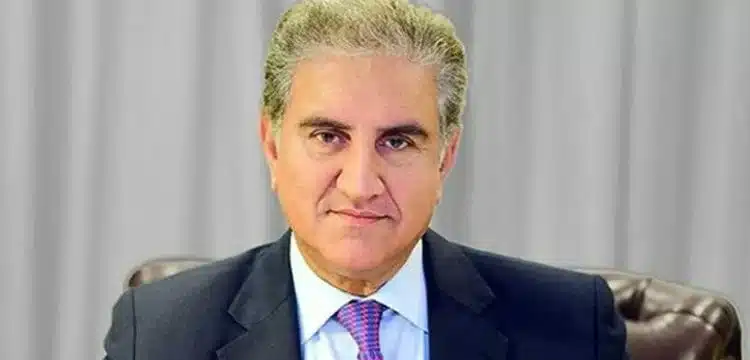[vc_row][vc_column][vc_column_text dp_text_size=”size-4″]The Election Commission of Pakistan (ECP) has made a significant ruling by prohibiting Shah Mahmood Qureshi, the Vice Chairman of Pakistan Tehreek-e-Insaf (PTI), from participating in elections for a substantial period of five years. This decisive action was taken under Article 63 (1)(h) of the Constitution, as disclosed in an official notice issued by the electoral body. Qureshi, a seasoned politician, faces disqualification from the upcoming general elections scheduled for February 8 and subsequent polls. The basis for this decision lies in Qureshi’s conviction in the cipher case, adjudicated by a special court established under the Official Secrets Act, leading to a 10-year sentence and disqualification under the aforementioned constitutional article.
The cipher case, which resulted in the disqualification of both PTI founder Imran Khan and Qureshi, revolves around allegations that the former prime minister disclosed the contents of a confidential cable sent by the country’s ambassador in Washington to the government in Islamabad. The severity of the conviction, including a decade-long imprisonment, underscores the gravity of the charges and the legal consequences faced by those involved.
Read more: 10-Year Sentence For Imran Khan, Shah Mahmood In Cipher Case
Qureshi’s disqualification is not solely under Article 63 (1)(h) but also extends to Section 232 of the Elections Act, 2017. His bid to contest a National Assembly seat from NA-214 (Tharparkar) in Sindh, despite initial rejection by the returning officer, was later permitted by the appellate tribunal of the Sindh High Court (SHC) last month. However, this recent ruling by the ECP poses a more substantial obstacle for Qureshi’s political future, prohibiting his participation in electoral processes for the next five years.
It is noteworthy that Qureshi’s disqualification, as per the ECP, does not impede the electoral process in NA-214 Tharparkar. This is due to the specific legal provision that only allows the termination of a contesting candidate’s election in case of their demise. The unique circumstances surrounding Qureshi’s case, where the appellate tribunal of the SHC had allowed him to contest despite initial rejection, further highlight the intricacies of the legal proceedings.
The ECP’s notification offers detailed insights into the basis of Qureshi’s disqualification, referencing the judgment issued by the special court. The judgment found Qureshi guilty under various sections of the Official Secrets Act, leading to a rigorous imprisonment sentence of 10 years. Consequently, the disqualification under Article 63 (1)(h) of the Constitution and Section 232 of the Elections Act, 2017, is imposed, affecting Qureshi’s eligibility to participate in the 2024 general elections and subsequent polls for a span of five years.
This ruling significantly impacts the political landscape, emphasizing the legal repercussions for individuals convicted of offenses under the Official Secrets Act and reinforcing the importance of upholding the integrity of confidential information in the realm of governance.[/vc_column_text][/vc_column][/vc_row]











